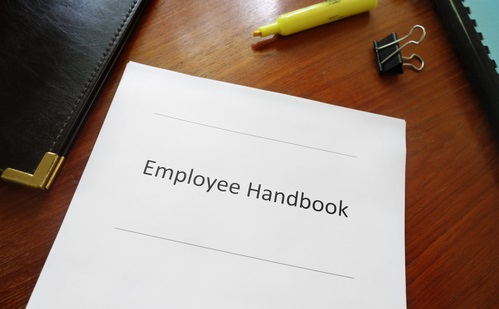The Company Handbook

The following is from a good friend of ours. Alan Krystal is an attorney on Long Island who specializes in employment and labor law. Alan is a great resource for small businesses. His website is www.alankrystallaw.com
The Company Handbook
{2:54 minutes to read} To some employers, a handbook serves the primary purpose of informing employees of their
- benefits,
- days off,
- work standards,
- dress code, and
- company rules.
However, a comprehensive and well-crafted handbook can be of critical importance in protecting an employer in the event of litigation.
Handbooks are not just for large companies; companies of all sizes should have a company handbook. The handbook should make it clear that:
- its provisions do not constitute a guarantee of employment or an employment contract;
- employment is “at-will” and subject to termination at any time for any reason, with or without cause, and with or without notice; and
- the employer is committed to equal opportunity and against any discrimination based on all categories protected by federal and state law.
In addition, the handbook should clearly state policies against harassment and workplace violence. There should be a clear definition of which types of conduct are deemed unacceptable and the consequences of that conduct. The handbook should include examples of unacceptable conduct and its consequences, as well as setting forth a clear and specific complaint procedure.In the event of litigation, the existence of these policies, and the extent that they are enforced by employers can be of paramount importance.
There should also be clear policies as to attendance and leave (including the Family and Medical Leave Act), as well as policies regarding e-mail, internet usage, and substance abuse. In addition, there should be policies regarding expense reimbursement.In prior articles, I have addressed the importance of having policies regarding
- confidential information,
- conflicts of interest, and
- use of social media.
All of these policies should be clearly set forth in a company handbook.Handbooks must be revised on a periodic basis. Not only do company policies change over time, but the state of the law also changes.
A handbook is not a generic “one size fits all” document. Not only should a handbook address the necessary legal requirements, it should also state policies that are company-specific.It is very important to make sure that all employees receive a copy of the handbook andacknowledge its receipt in writing.
A carefully crafted and comprehensive handbook cannot only be useful in avoiding litigation but can also be of great assistance in promoting harmonious management-employee relations.
Alan Krystal
Alan H. Krystal, P.C.
631 780 6555
[email protected]

